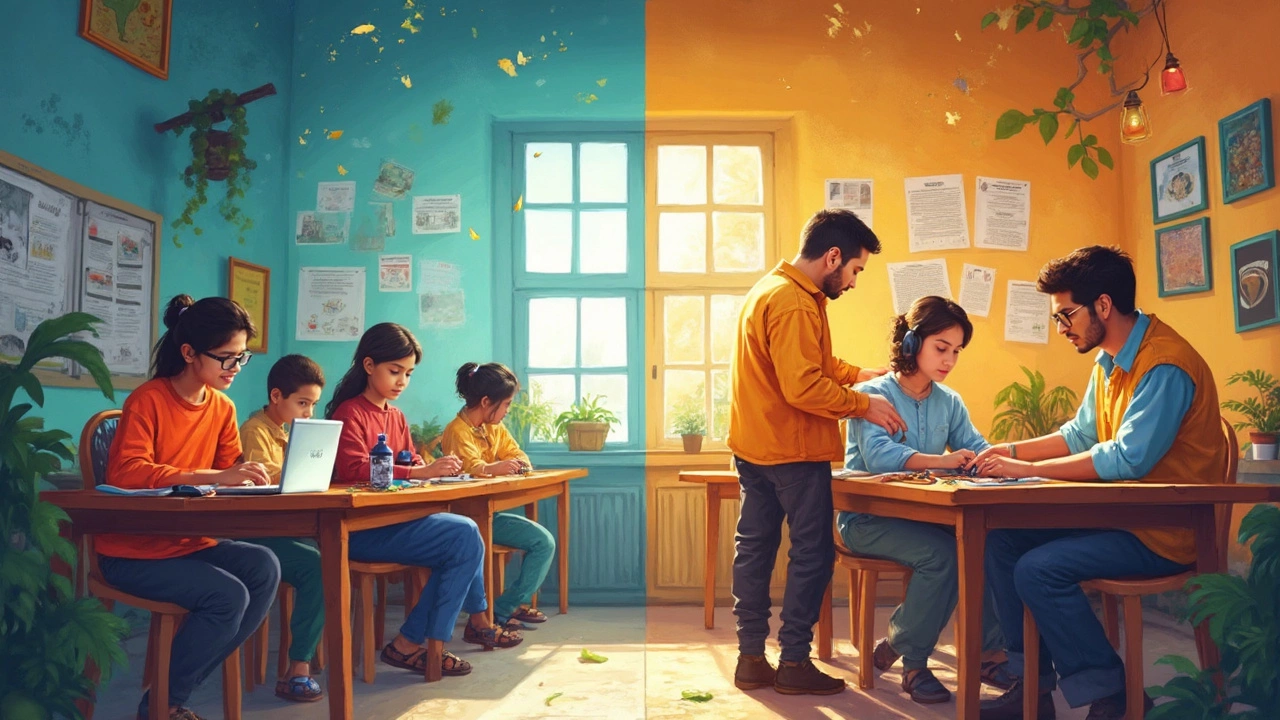Education Difference: What Really Sets Learning Paths Apart
When you’re picking a study route, the smallest detail can change the whole outcome. Is a board exam tougher than an online course? Does a distance‑learning program give you the same skills as a campus class? Knowing the real differences helps you avoid guesswork and invest your time where it counts.
Exam formats – why JEE Mains vs JEE Advanced matters
JEE Mains is the gateway; it tests basic concepts, speed, and accuracy. JEE Advanced goes deeper, demanding analytical thinking and problem‑solving under tighter time pressure. If you aim for an IIT, start with Mains to build a solid base, then switch to Advanced‑style practice once you’ve cleared the eligibility hurdle. Skipping the Mains prep and jumping straight into Advanced questions often leads to burnout because the question styles are not aligned.
School boards and curricula – CBSE vs other systems
CBSE focuses on a uniform syllabus and frequent assessments, which can be a boon if you like regular feedback. International Baccalaureate (IB) or A‑Levels, on the other hand, emphasize critical thinking and project work. Pick CBSE if you want a clear roadmap and strong preparation for national exams like NEET or JEE. Choose IB/A‑Levels if you’re targeting overseas universities or need a research‑oriented mindset. The choice influences not just exam scores but also how you approach learning in college.
Online learning versus distance learning is another common mix‑up. Online courses usually require a stable internet connection, interactive videos, and live quizzes – think of platforms like Coursera or Byju’s. Distance learning often delivers printed material or pre‑downloaded content, allowing you to study offline, but it may lack real‑time feedback. If you thrive on immediate interaction, go online. If you have spotty internet or a tight schedule, distance learning gives you flexibility.
eLearning models also differ. Blended learning mixes classroom time with digital resources, giving you the best of both worlds. Flipped classrooms ask you to watch lectures at home and solve problems in class, which speeds up mastery for subjects like Physics or Chemistry. Self‑paced courses let you move as fast or slow as you need – great for adult learners who juggle work and study.
Curriculum difficulty varies by region too. The IB Diploma is often called the toughest school syllabus globally because it covers six subjects, an extended essay, and Theory of Knowledge. CBSE is known for its breadth, especially in math and science, while state boards may focus more on regional language and local history. Understanding the workload helps you plan study hours realistically and avoid surprise stress.
When you weigh these differences, make a quick checklist: exam style, assessment frequency, learning mode (online vs offline), and curriculum depth. Write down what matters most for your career goal, then match it with the option that ticks the highest number of boxes. This simple habit saves you weeks of ineffective study and keeps motivation high.
Bottom line: education isn’t one‑size‑fits‑all. Spotting the real differences between exams, boards, and learning formats lets you design a roadmap that works for you, not the other way around.
College vs Vocational Training: Key Differences Explained
Choosing between college and vocational training isn't as simple as picking where to hang out for the next few years. This article breaks down how college and vocational programs really work, what each means for your wallet, and who thrives in these different settings. You'll also find some cool facts about graduation rates, earning power, and even shortcuts to getting a job. If you're figuring out your next step after high school, this guide lays it all out, plain and simple.
read more